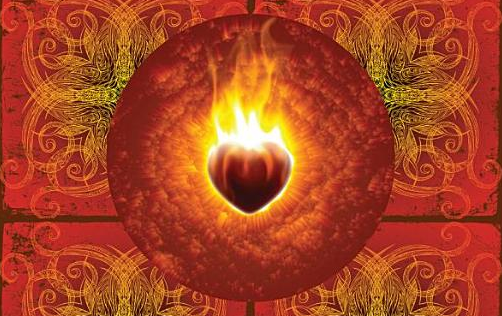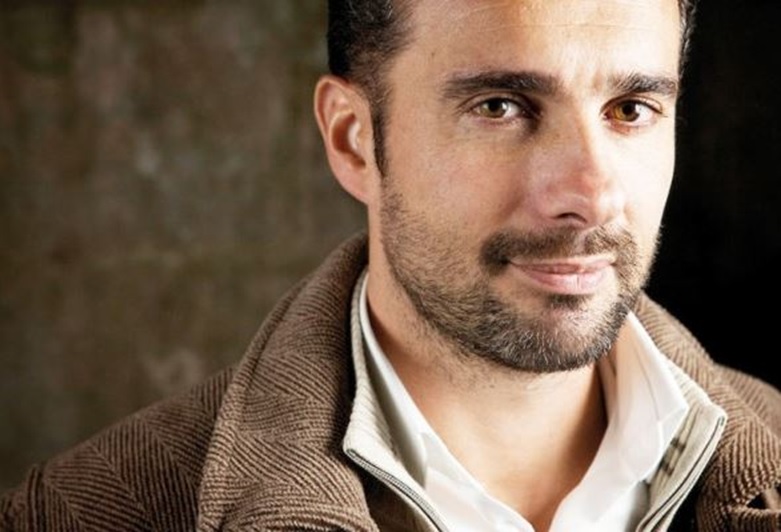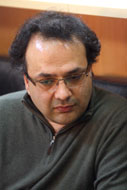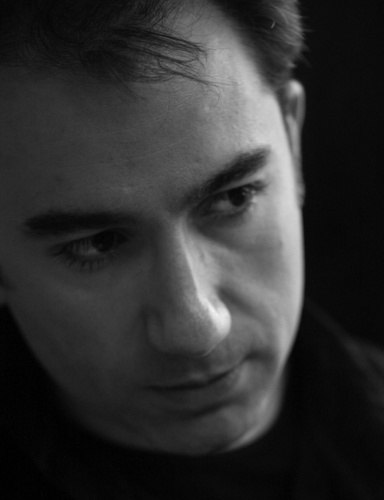In this Khutbah, delivered at the very first planning session for the Baraka Institute in May of 2008, Mahmoud Mostafa reflects on the inner essence of Islam as love.
1. Bismillah ar Rahman ar Raheem
Praise be to Allah. We bear witness that there is only one god who has no partners beside Him, and we bear witness that Muhammad is His servant and messenger.
Praise be to Allah who blessed us with the guidance of His prophets and messengers. Praise be to Allah whose Mercy encompasses everything. Praise be to Allah who knows our needs and answers our calls and brings peace to our hearts.
Praise be to Allah who breathed into us of His Spirit and placed the light of His guidance in our inmost being. Whomever Allah guides, no one can misguide, and whomever Allah misguides, no one can guide. We put our trust in Allah and seek His forgiveness, aid, and support.
A man once came to the Prophet (puh) and asked him about the hereafter. The Prophet asked him, “And what have you prepared for that time?” The man replied, “Nothing, except that I love Allah and I love you.” The Prophet (puh) answered him, “You are with the ones you love.”
Dear brothers and sisters, the guidance of Islam is the guidance of love. The innate, natural and ancient religion that is Islam is the religion of love. The Prophet (puh) came to guide us to love and to make clear the love that is at the core of all religion. Our purpose as human beings is to consciously manifest Allah’s love in our lives. This is the most significant meaning of Khilafa and Ibada that can bring purpose to us and transform our lives. When we reflect upon the history of the Prophet (puh) and the spread of his message we will realize that Islam could not have taken root in the world without the love that filled the heart of the Prophet and was clearly manifest in his way of relating and interacting with people that brought out their own deep and profound love for him. Without this mutual and abiding love, none of us would be here today. Without this love Islam would not have been possible.
Today, it seems that we too often hear and read much that is harsh and heartless about Islam and not enough that is loving and beautiful. There seems to be too many messages of prejudice, literalism, legalism, violence, and oppression. The superficiality, ugliness and darkness that is too prevalent in today’s Islamic discourse is nothing like what the Prophet brought us.
I would like to share with you part of the first sermon ever given by the Prophet (puh) in Medina. This is what he had to say to his companions,
“Verily, the best discourse is the Book of Allah. One is truly successful whose heart Allah has adorned with the love of His Book, and whom, after living in denial, Allah has caused to enter into submission to Him, and caused him to prefer His Book above any human discourse. The Book of Allah is the most beautiful and eloquent of discourses.
Love that which Allah loves! Love Allah with all your hearts! Grow not weary of hearing the Word of Allah. Do not stop remembering Him. Do not let your hearts grow hard toward Him. For verily, Allah has preferred His Book above all of Creation. Indeed, Allah has endowed it with guidance to the best of deeds, and made it an example for the elect of His servants, and filled it with righteous discourse, and has made clear in it what is lawful and unlawful for you.
So, serve Allah alone, and associate with Him no other. Be ever conscious of Him. Be truthful to Allah in what you utter from your mouths. Let the Spirit of Allah be the source of love between you.”
Can you hear the love in his words? Can you hear his urgent call to our hearts? Can you sense the profound purpose in his teaching?
Love is so central to Islam that without it there can be no real faith. The Quran tells us clearly what following the Prophet is about,
قل إن كنتم تحبون الله فاتبعوني يحببكم الله و يغفر لكم ذنوبكم و الله غفور رحيم
3:31 “Say, if you love Allah, then follow me and Allah will love you greatly and forgive your sins for Allah is forgiving and merciful…”
And even more decisively it says to the people of faith that,
يا أيها الذين آمنوا من يرتدَّ منكم عن دينه فسوف يأتى الله بقوم يحبهم و يحبونه أذلةٍ على المؤمنين أعزةٍ على الكافرين يجاهدون في سبيل الله و لا يخافون لومة لآئِم، ذلك فضل الله يؤتيه من يشآءُ و الله واسعٌ عليم
5:54 “O you who have faith whoever among you turns back from his religion Allah will surely bring forth a people He loves and who love Him who are humble before the faithful and exalted before the deniers. They strive in the way of Allah and fear no blame from any blamers. This is the favor of Allah, He bestows it on whomever He wills. For Allah is all-encompassing, all-knowing!”
In these two tremendous verses we can understand some remarkable things. We can understand that faith and faithfulness are defined as love between God and the people of faith. A Mu’min is one who is deeply and profoundly in love with God. It is this love that motivates us to strive, to seek, to turn back to Allah, to give up our worldly attachments and return to our Rabb. It is this love that gives us the power and strength to face the various trials of our faith throughout our lives. It is this love that teaches us humility, compassion, trust, obedience and honesty. It is this love that enables us to sacrifice, to give of ourselves and of our possessions for the sake of God. It is this love that opens us to submission, to Islam. We can also understand that this relationship of love is a special, precious gift bestowed by God upon us. Without His will and generosity we would be heedless of His love in our hearts. We can also understand that the abandoning of religion in the context of this Ayah is to turn away from love because the consequence of this abandonment is that God promises to replace us with people who have this relationship of love with Him. And we can understand that the way to God’s love is to follow the Prophet (puh), to be in his footsteps, to strive to be like him and in this striving our love is made greater and greater by God.
In a Sacred Tradition Allah says,
“I was a hidden treasure and I loved to be known so I created heaven and earth that I may be known.”
One of Allah’s names, one of His attributes, is Al Wajid. This word has several meanings among them is to bring into existence. It also has the meaning of intense, existential love. Reflecting upon this divine name, we can see that there is a relationship between love and creation. And reflecting upon the sacred tradition we can see that God’s love to be known is the primary reason for creation. In this way we can come to a truly profound insight; Allah’s love is the very cause of existence. We are alive today because of His love, the whole Universe is here because of His love.
The relationship of love between us and Allah, between us and others, and between us and all of creation is essential to reaching our full potential as human beings. When we nourish our hearts with love, when we manifest Allah’s love in our lives; with our families, with our friends, in our work, in our prayers, in everything that we do, the entire meaning of life changes for us and our own experience of our humanness is transformed; we become adorned with the beautiful characteristics of the Prophet.
This is the meaning of following in the footsteps of the Prophet (puh); we follow him by adorning ourselves with the qualities of his noble character. We follow him by striving to become like him in our humanness, in our quality of relationships, in our conduct in society, in our service to humanity.
The noble character of the Prophet (puh) has been best explained by his cousin, Jaffar Ibn Abu Talib, when he was asked by the King of Abbysinia to explain his religion. Jaffar replied:
“We were a people lost in ignorance. We worshipped idols, we back-stabbed one another in gossip, we committed sins without shame, we severed the bonds of mercy among us, and we were unkind neighbors. The strong among us devoured the weak. Thus we were until Allah sent to us a messenger from among ourselves, well-known to us in his nobility, honesty, trustworthiness, and tenderness. He called us to unity and to devoting our worship to Allah alone and to removing the idols from our hearts. He commanded us to be truthful when we spoke, and to fulfill our trust, and to preserve the bonds of mercy among us, and to be kind neighbors, and to desist from violating what is sacred. He called us to turn back from our sins, and from falsehood, and from devouring the wealth of orphans, and from defaming honorable women. So we believed in him and in his message and we followed what he received from his Lord.”
Brothers and sisters, the Sunnah of the Prophet is about the kind of character that manifests God’s love in existence. His Sunnah is that which ennobles us, that which transforms us into better human beings. It’s about becoming kind and tender human beings who are deeply and profoundly in love with God.
The Prophet’s love, awe, and longing for Allah comes through with overwhelming clarity when we reflect upon his prayers. Here is just one example:
“O my God make me love You, make me love those who love You, make me love all things that bring me closer to loving You. O my God, make me love You, and Your angels, and Your prophets, and all of Your creation. O my God, make my love for You dearer to me than myself, and my family, and my wealth, and my children, and from cool, pure water to the thirsty.”
May Allah bless us with His love, and the love of those who love Him. May Allah fill our hearts with love. Allah bless Prophet Muhammad, his family, and companions. Peace be with you and Allah’s mercy.
2. Bismillahi Rahmani Raheem
Praise is to Allah the Merciful, and the Compassionate. I bear witness that there is only one God and I bear witness that Muhammad is His Prophet. Peace and blessing upon him, his family and companions. We bear witness that he fulfilled his mission and delivered his trust and made the path of surrender clear to us.
In the Quran it says,
و من الناس من يتخذُ من دون اللهِ أنداداً يحبونهم كحبِّ اللهِ و الذين آمنوا أشدُّ حباً للهِ
2:165 “Among people there are those who take others as equal besides Allah. They love them as they would love Allah. But those who have faith love Allah more than anything else.”
You remember in the first part of this Khutba that the Prophet (puh) told the man who came to him, “You are with those you love.” The Prophet wasn’t just being nice to this man, he was teaching him and us something very important. He was making clear that love is the ultimate test of our worthiness as human beings. And he was giving us a way to understand about our own love. To know what it is that we really love.
We are with what we love. Whatever we love is what is closest to us. What is most often thought of and remembered by us, what is most sought by us, that’s what we love. So, what is it that we remember the most? What occupies our attention the most? What do we wish for the most? Let us be honest with ourselves, do we think of Allah most of the time? Or are we thinking of other things most of the time. Where is our attention? Is it on God or is it on the countless other things that occupy us and distract us from our real purpose?
If we can examine ourselves honestly and know what we love then we have taken a major step forward. If we find that what we love is Allah then we are blessed with a great gift for which all praise is due to Allah. But if what we love is other than Allah, then at least we know and we have the opportunity to seek to change what is in our hearts.
A reliable test of how true our love is for Allah is to see how much we are able to serve others and to give of ourselves generously and openly for Allah’s sake. This is one of the most important truths: The quality of our faith is reflected in our intention, attitudes, and behavior.
How do we do this? How do we clear our hearts of our love and attachment for all these things that are other than Allah? How do we get rid of our pre-occupation with all the other captivating distractions that compete for our attention? How do we become among those who “…love Allah more than anything else”? We can find the answer in the Quran and the way of our Prophet (puh) and it is the remembrance of God because it is in the constant remembrance of God that our hearts can find stillness and intimacy can develop. As we are guided in the Quran:
الا بذكر الله تطمئن القلوب
13:28 “…It is through remembrance of God that hearts find rest”
In the Quran Allah promises us,
فاذكروني أذكركم
2:152 “Remember Me, I shall remember you.”
Our remembrance of Allah is His remembrance of us. Our call to Him is His answer to us. Remembrance is the way of intimacy with Allah.
In a Sacred Tradition, Allah says, “I am as my worshipper thinks I am. I am with him when he remembers Me…if he seeks closeness to Me by as little as an inch, I come closer to him by a yard. And if he seeks closeness to Me by a yard, I come closer to him by a mile. And if he comes to Me walking, I come to him running.”
In another Sacred Tradition Allah says, “My worshipper can get close to me with nothing better than what I have made obligatory. And as he continues to get closer with selfless acts of giving I love him. And when I love him, I become his hearing, his sight, his hands, and his feet. And whatever he asks of Me, I shall give him and whatever aid he seeks of Me, I shall aid him…”
So, Allah’s grace multiplies with our sincere efforts and honest intention to come closer to Him. Whatever we give to Him comes back manifold to us. In this way, little by little, our love for Allah grows and develops and it transforms us into loving, noble human beings.
We get close to Allah by serving Him, by being for His sake, by learning to make our intentions purely for Him, by learning to become a little less selfish and a lot more giving.
The Prophet (puh) once told his dear companion, Muazh Ibn Jabal, “Muazh, I do love you!” Muazh replied, “And I love you, Messenger of Allah, more dearly than my own father and mother!” The Prophet then instructed Muazh, “Do not end a prayer without asking Allah to help you remember Him, to be thankful to Him, and to serve Him in the best of ways.”
As we continue to live our lives in remembrance of Allah our capacity for love will grow, our hearts will expand and we will reach our full human potential inshallah.
The intimacy and love that develops in us with our remembrance and other selfless acts of service is a mystery and a wonder.
Allah says in a Sacred Tradition, “I have prepared for my righteous servants what no eye has seen, nor ear has heard, nor been imagined by any human heart…”
May Allah bless us with His merciful guidance to His straight path. May He bless us with His love. Allah we seek refuge in You from hearts that are not humble, and egos that are never satisfied, and eyes that do not weep, and prayers that are not answered, and works that are not elevated.
Allah, bless us with wholesome hearts, grateful tongues, and obedient bodies. Do not let us forget You. Do not deny us loving You. Allah, preserve us and protect us. Be merciful with us. Increase our blessings and support us. O You who has ability over all things.
Allah, bless Your beloved servant, and the light of our hearts, our master and friend Muhammad, the noble and pure Prophet and bless his family, companions, and followers. May we become his companions in this world and in the other world, and peace be upon you and Allah’s mercy and blessings.
Rise to prayer that Allah may have mercy on us all.





